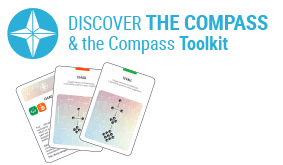From Global to Local: using Massive Open Online Courses for content creation
/As part of the Massive Open Online Course (MOOC) on Humanitarian Essentials, jointly organised by the Humanitarian Leadership Academy and ITCILO from 16 October to 12 November 2017, participants were asked to submit a case study exercise. This assignment had as objective to internalise the learning contents of the MOOC and combine them with the professional experience and interests of the participants.
MOOC learners were asked to draft a case study on how they have applied or would apply humanitarian principles in their current or future working context. This exercise allowed them to better understand the key challenges and dilemmas related to the application of humanitarian principles, by reflecting on them in specific crisis situations and emergencies.
“How you or your organization applied the humanitarian principles, and what are your lessons learned?”
In total, 66 case studies were submitted. A peer review was applied to score the case studies against a number of criteria, including “demonstrated understanding of the principles and their main challenges and dilemmas, demonstrated learning, and reader-friendliness”. This review resulted in a top-30, of which the tutor of the MOOC selected fifteen case studies which are now available through an online publication: “Humanitarian Learning in Practice”.
From “access to information in Greece” to “first emergency response in the Balkans” or “principles to humanitarian actions in Somalia”, the published case studies refer to either ongoing developments in the humanitarian sector or offer interesting insights in what can be learned from responding to current crises.
The fifteen authors come from different backgrounds and offer various understandings. All together, these case studies provide a comprehensive overview of the challenges of applying humanitarian principles in the field, and we hope that their work is an inspiration for others who like to reflect and learn.









